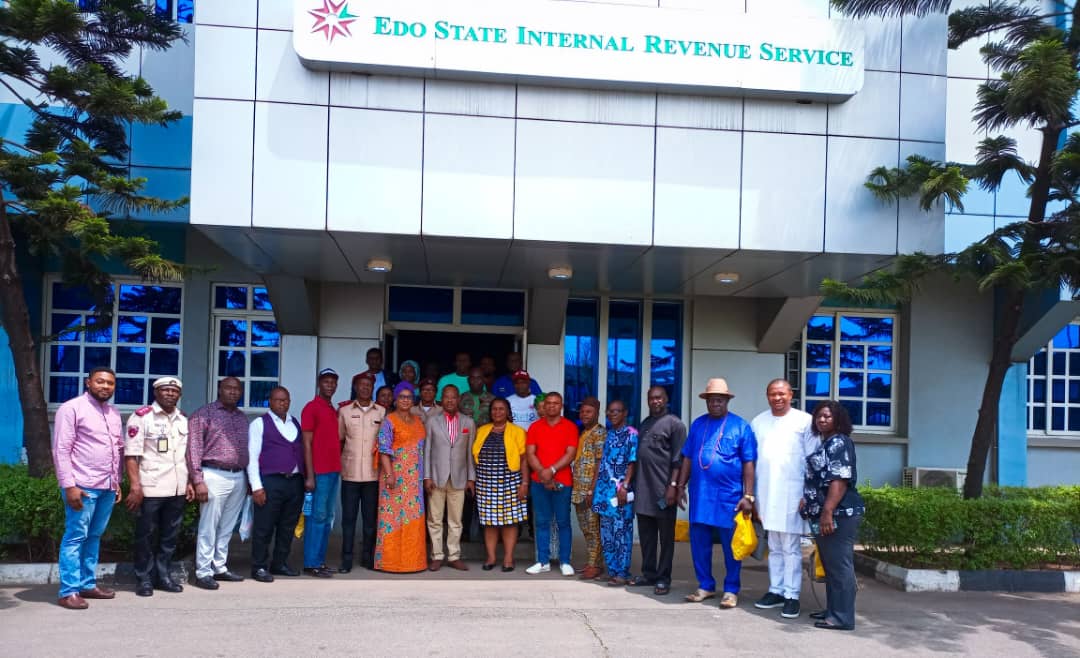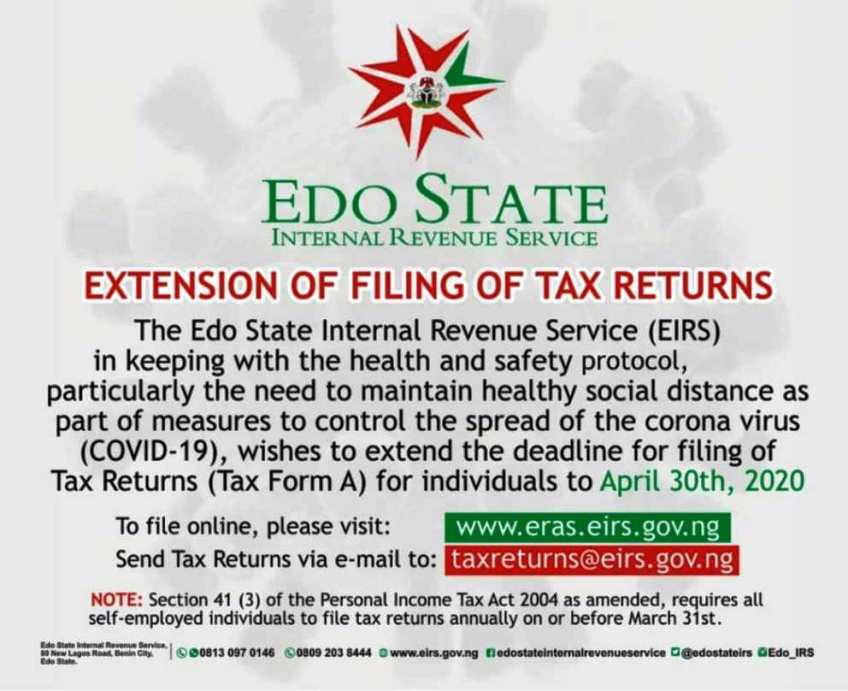The Joint Tax Board (JTB) has met with stakeholders in Edo State to mainstream on the use of a “single interstate road tax sticker” to eliminate the issue of a double or multiple taxes paid across Nigerian states.
The apex tax regulating body, JTB, said the interface with stakeholders at the Edo State Internal Revenue Service (EIRS) Head office was borne out of the need to mainstream, regulate, strengthen relations on enforcement procedures via the use of the online application and physical enforcement on the enumeration of stickers across the thirty six states of the federation, including Abuja, as well as serving as a feedback mechanism from the field of practice.
The team lead of the JTB, Dr. Nneka Esomeju (Head Technical Services,) explained procedures and listened to feedback from participants drawn from the Federal Road Safety Commission; Heavy Duty & Haulage Transport Association of Nigeria; The Nigeria Incentive -Based Risk Sharing System for Agricultural Lending (NIRSAL Plc.); Manufacturers Association of Nigeria (MAN); Market Traders Association of Nigeria (MATAN); Association of Local Governments of Nigeria (ALGON); Nigerian Association of Chambers of Commerce, Industry, Mines, and Agriculture (NACCIMA); State Revenue Authorities (Motor Licensing Operations); Nigerian Union of Local Government Employees; National Union of Road Transport Workers: Road Transport Employers Association of Nigeria;
Ministry of Transport and Federal Ministry of Trade and Investment.
She informed participants that members of the JTB were in the state to carry them along with procedures and rules of engagement as critical stakeholders. Also, to verify if they are active at the state level since what is being implemented is anchored on the law as contained in the taxes and levies act.
Areas touched on by her team during the JTB presentation included – ‘System and process overview of the initiative, enumeration module, roles of enforcers, enforcement strategy, enforcement application and enforcement incentives.”
The chief host and Chairman, Taskforce on Internally Generated Revenue (IGR), EIRS, Hon. John Osagie Inegbedion.
in his remarks noted that, “it is an interactive conversation, the taxes are not new but the modalities is what has changed.” He sued on the need for all stakeholders to understand the new process flow such that all are in tune with handling the new processes.
He noted, that as a country, there is a new realization of the process flow of collection of taxes and how it impedes or distorts business flow since commerce affects transportation and the movement of goods and services across the nation. He pointed out that the new tax flow would eradicate the issue of multiple or double taxation at local government areas and across states.


